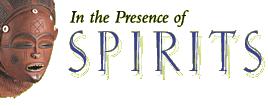




| The roughly 15,000 members of the Bidjogo peoples inhabit some 20 islands and islets off the west coast of Guinea-Bissau, to which they belong politically. The Bidjogo, protected against Islamization by distance and deeply attached to their traditions despite inevitable acculturation, manage to preserve many indigenous traits.
Through his mother, every Bidjogo is descended from one of four mythical ancestors. Each village belongs to one of these four clans, and men and women are required to marry outside of their clan. The clan that "owns the soil" supplies the traditional authorities of the village–that is, the king and the priestess. The Council of Elders (Grandeza), with members of either gender, makes such village decisions as handling conflicts with other villages, arranging the sowing of crops and selecting dates for initiation. Although the priestesses (oquinka) play an important role in these communities, kings have, since the late 1800s, gradually attained importance, so that today it is they who deal with the civil authorities. The king is also the guardian of the figures that incarnate the spirits of deified ancestors, keeping them in his own home. |